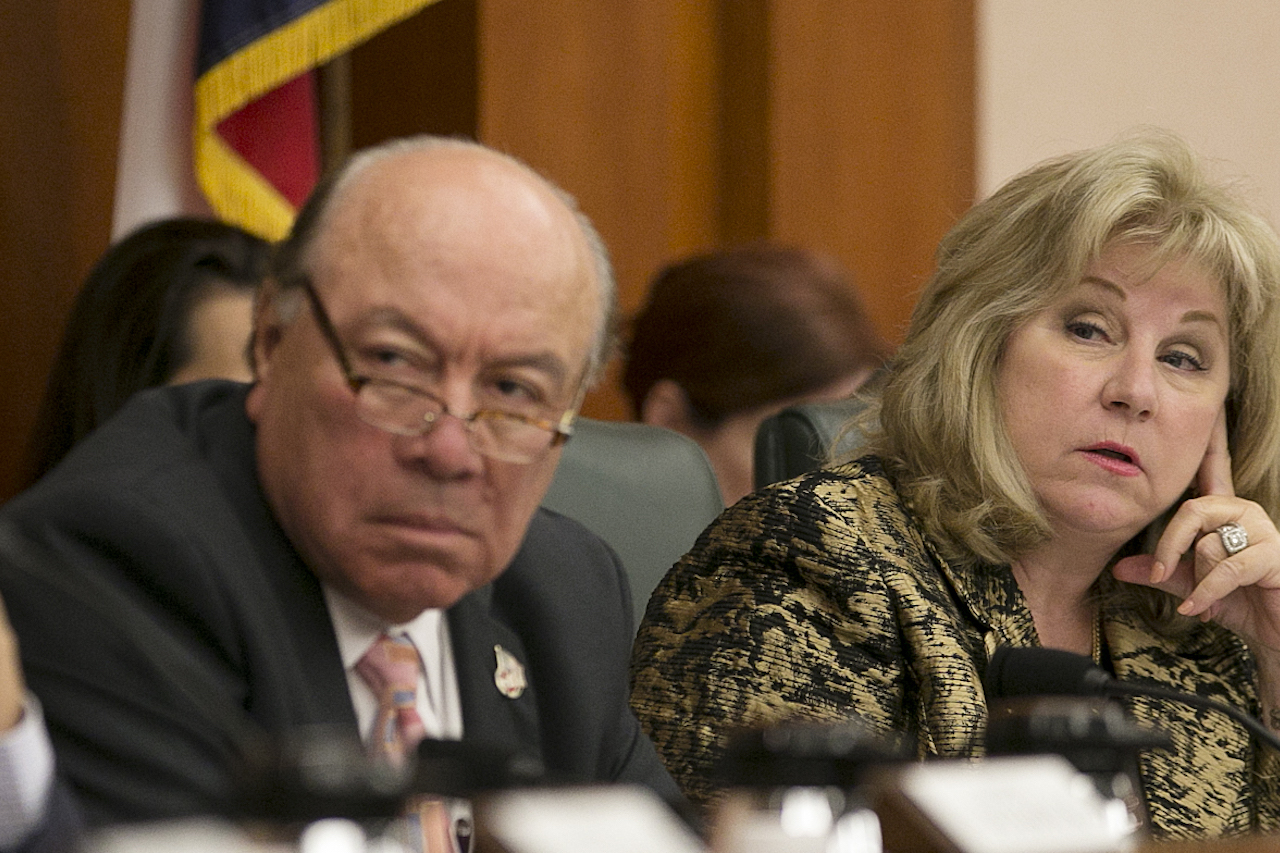Last session, the Texas Legislature passed HB 3 to invest more state dollars in our classrooms and give a much needed salary increase to our teachers. With the coronavirus pandemic, we have learned to appreciate even more the role of our schools and teachers.
Unfortunately, given the downturn in the economy due to this pandemic, we will face tough budget decisions come next session. However, public education remains a priority and we are committed to not losing sight of our future — and that’s our children. We must continue working together to ensure they thrive and not let this current crisis become an everlasting obstacle in achieving their dreams.
To protect our investment and commitment to education in HB 3, we must maximize the funding coming from the federal government. It is going to take full utilization of U.S. Department of Education, FEMA, USDA, and other sources of funding just to ensure that we have the funds necessary to continue to meet our responsibility to public education.

One such part of that funding equation is the Elementary and Secondary School Emergency Relief Fund (ESSERF) established in the CARES Act. This fund provides Texas with nearly $1.3 billion for our schools and gives us the flexibility to have the funds we will need to fund public education during the next biennium. This week, Texas Education Agency (TEA) Commissioner Mike Morath, presented superintendents across the state with the decision made by the Governor and legislative budget writing leaders to use ESSERF funds to cover current expenses in the Foundation School Program. This decision will both maintain full formula funding for schools this year and next, while simultaneously reducing the state’s obligation by approximately $1.1 billion. This savings now, will allow us to free up the funds to use again for public education as we begin drafting the state’s budget next session.
An additional piece of the funding puzzle is the Coronavirus Relief Fund (CRF). This fund provides the state with $11.24 billion that is split three ways: $3.2 billion for the twelve largest counties and 6 largest cities; $1.85 billion for the remaining 242 counties and cities; and, $6.18 billion for the state. These funds must be spent on coronavirus related expenses incurred March 1, 2020, through December 30, 2020. Using these funds to support school district coronavirus expenses is a permissible and encouraged use of the CRF.
To help achieve our goal of preserving our commitment to public education, Commissioner Morath announced that the state will spend hundreds of millions of dollars from the state’s $6 billion CRF share to help cover part of coronavirus related expenses incurred by school districts this school year. This will provide much relief to our school districts who have incurred expenses for increased cleaning supplies, personal protective equipment, software licenses for online teaching, technology devices for distance learning, and other unanticipated costs due to COVID-19.
While we are working at the state level to support public education, we still strongly encourage our school districts to also work with their city and county to help cover the school districts’ portion of current and future coronavirus-related expenses. Education benefits everyone in every community and it is incumbent upon all of us to do what we can to support the educational achievement of all children across Texas. We know the CRF can be used to help achieve this goal, and it is our hope that local governments will sincerely consider partnering with their local school districts by providing them with monetary assistance from their Coronavirus Relief Funds.
Education is the greatest equalizer. Although many challenges still remain, we must not lose sight of protecting our investment and commitment to the education of our children. While our current situation changes daily, our top priority of ensuring a high quality public education system for all Texas children will not change. Challenges certainly lie ahead, but with the right use of the tools we have available, we are confident we will emerge as strong as ever.
Editor’s Note: The above op-ed was penned by state Senators Jane Nelson and Juan Hinojosa. Nelson, a Republican from Flower Mound, Texas, chairs the Senate Committee on Finance. Hinojosa, a Democrat from McAllen, Texas, is vice-chair of the Senate Committee on Finance. The op-ed appears in The Rio Grande Guardian with the consent of the authors.
Editor’s Note: The main image accompanying the above guest column shows a classroom at Dwight Middle School in South San Antonio ISD. (Photo credit: Michelle Phillips of National Public Radio)


